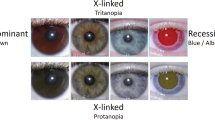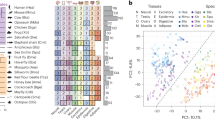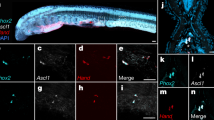Abstract
THE special function of the segmental papillæ of the medicinal leech, Hirudo medicinalis, has long been in doubt. As far back as 1885, Whitman, in a study1 describing the external morphology of the leech Hirudo, suggested serial homology of the segmental papillæ with the eyes. He supported this by the evidence that in sections of the segmental papillæ are found all the elements of the eye, except the pigment. Owing to the absence of a pigment cup holding the glassy cells, however, as is found in true visual organs, Whitman found it difficult definitely to regard the segmental papillæ as visual organs. The possibility that the segmental papillæ may be concerned with vision has also been suggested by me in my memoir on the Indian leech Hirudinaria 2.
This is a preview of subscription content, access via your institution
Access options
Subscribe to this journal
Receive 51 print issues and online access
$199.00 per year
only $3.90 per issue
Buy this article
- Purchase on Springer Link
- Instant access to full article PDF
Prices may be subject to local taxes which are calculated during checkout
Similar content being viewed by others
References
Whitman, C. O., Proc. Amer. Acad. Arts and Sciences (1885).
Bhatia, M. L., Ind. Zool., Mem. 8 (1941).
Author information
Authors and Affiliations
Rights and permissions
About this article
Cite this article
BHATIA, M. Extra Ocular Photoreceptors in the Land Leech, Haemadipsa zeylanica agilis (Moore) from Nainital, Almora (India). Nature 178, 420–421 (1956). https://doi.org/10.1038/178420a0
Issue Date:
DOI: https://doi.org/10.1038/178420a0
Comments
By submitting a comment you agree to abide by our Terms and Community Guidelines. If you find something abusive or that does not comply with our terms or guidelines please flag it as inappropriate.



